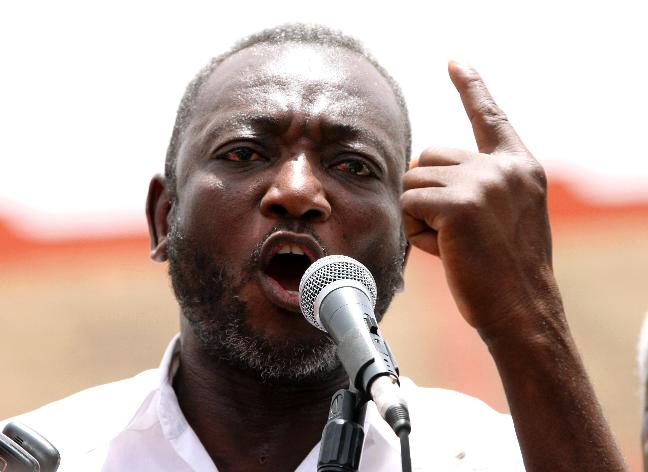Global India and its diaspora

Gerard McCann explains India´s attempts to re-engage overseas Indians, arguing that creating productive friendships – political, economic, if not “˜cultural’ – between India and its diaspora is not as straightforward as might be assumed.
India’s role in world affairs will become one of the most important geopolitical dynamics of the twenty-first century. No longer the autarkic power of the Cold War era, India’s post-liberalisation extraversion is transforming India’s place in the world and its own self-image. Indian conglomerates assert themselves with a certain swagger, as when Tata took control of the iconic British firms Corus and Jaguar in 2007-08. India’s leadership at the World Trade Organization and even the popularity of the Indian Premier League overseas are just two further diverse sources of national pride for a “˜global India’. In such discussions, however, several factors are often overlooked. The most important is the dissonance between images of India as a global power and the tragic levels of poverty and wealth polarization at home – truths with which authors such as Arundhati Roy and Aravind Adiga have eloquently grappled. The disenchantment of the Indian left with the 2008 US nuclear deal was also indicative of the profound and often acrimonious domestic debates on India’s engagement with the neoliberal world order; fractiousness that is rarely weaved into the laudatory tales of India’s rise to greatness available outside the subcontinent.
A more minor, though no less neglected, theme has been the place of India’s “˜diaspora’ within these national tales of development. Since the 1990s India has attempted to re-engage overseas Indians, particularly in the West, given its new global proclivities. In recent years, these policies have been extended to target Indian communities within the developing world. History continues, however, to affect the ability of India to co-opt overseas Indians into the wheels of its diplomatic and economic ambitions. Creating productive friendships – political and economic, if not “˜cultural’ – between India and its diaspora is not as straightforward as might be assumed.
India’s changing diaspora policies
India’s attempts to create conviviality with its diaspora have undergone marked transitions in light of India’s changing domestic political landscape and foreign policies. In the early postcolonial period, Prime Minister Jawaharlal Nehru was greatly pre-occupied with domestic economic growth and the bonds of Afro-Asian solidarity. For these reasons, amongst others, Nehru dissociated from the Indian diaspora by and large. This was especially true in places like East Africa where the concerns of local Indian traders seemed to be at odds with the African nationalist movements that enjoyed Nehru’s paramount support. This, in turn, created ambivalence and even antipathy to India within East African Indian communities, many of whom felt abandoned by India in the face of prejudice within their adopted homelands (as witnessed in Uganda in 1972 most notably). Even in societies where local Indian populations occupied less controversial places, Delhi’s relations with overseas Indians were left to atrophy as the imperatives of South Asian hegemony and dirigiste growth dominated official agendas.
This distance from overseas Indians would be altered by the consequences of Indian liberalization in 1991 and, more immediately, the emergence of Hindu nationalism. From the 1970s organizations of the Hindu right had been agitating and fundraising within overseas Indian communities. The electoral victory of the BJP enabled this activity to be institutionalized to shore up support for Hindu nationalism around the world, as well as to foster economic development within India. In the late 1990s the BJP government organized the first conference of parliamentarians of Indian origin and offered a Persons of Indian Origin (PIO) card, which furnished holders with multi-entry visas and certain commercial rights in India.
This distance from overseas Indians would be altered by the consequences of Indian liberalization in 1991 and the emergence of Hindu nationalism.
This first phase of engagement was largely related to attracting investment to India itself at the same time as remittances from South Asian labourers in the Gulf were also creating growth. The Congress Party would soon build on these potentially productive economic foundations, despite its opposition to the BJP political platform. Following the 2002 report of the Singhvi Committee on Indian Diaspora, the Government of India hosted the first Pravasi Bharatiya Divas in India in 2003. Held annually on 9 January, the anniversary of the return of Mahatma Gandhi from South Africa, the occasion aims to strengthen ties with the diaspora, awarding prizes to exceptional individuals. It has been continued by all Indian governments.
The momentum of such endeavours has grown. At the 8th Pravasi gathering in New Delhi in January 2010, Prime Minister, Manmohan Singh launched the “˜Overseas Indian Facilitation Centre’ – a self-styled “˜one-stop shop for Global Indians to facilitate investment into India’. What is perhaps most remarkable, however, is that the diaspora policies of the last couple of years are somewhat shifting in geographical bias. While still principally targeting North America, Europe and the Gulf (as the list of Pravasi Bharatiya Samman award winners attests), there has been diversification. Of late, the Indian government is also conspicuously engaging the Indian diaspora in the developing world. It should be no surprise that this move comes as Indian corporations and officials are increasingly animated by the economic and geopolitical potential of relations within the “˜global South’. This second phase of diasporic conviviality is thus arguably designed to aid India’s extraverted ambitions in new economic and diplomatic frontiers.
Indian corporations and officials are increasingly animated by the economic and geopolitical potential of relations within the “˜global South’.
Diversification and challenges
South Africa provides a germane example. In October 2010, the “˜Pravasi Bharatiya Divas-Africa’ will take place in Durban, aiming to “˜build bridges’ between South African Indians and their “˜country of origin’. Held on Gandhi’s birthday, publicity is replete with descriptions of the continuities of his satyagraha in South Africa and India, as well as common “˜cultural roots’. Broader celebrations are also in place in 2010 to mark the 150th anniversary of the arrival of the first indentured labourers from India, many of whose descendants remain in South Africa today. A wealth of publications lauds these historical links and the continued friendship between India and South African Indians today. Under all this cultural rhetoric, however, we must acknowledge the significant recent growth in Indo-South African trade, investment and diplomatic contact through such institutions as the IBSA forum. “˜Cultural brothers’ they may be, but the 1.5 million South African Indians can also be seen as potential lubricators of these lucrative relations (not least given their business heritage and political links) if convivial relationships can be managed.
At least this is the thinking – tacit and explicit – within the corridors of power in New Delhi. Such synergies may well yield reward – certainly as Indian-origin entrepreneurs overseas view India as a serious investment option in its own right and marshal their cultural roots towards such partnerships. This will likely become increasingly forthcoming as India’s changing bureaucratic architecture – the “˜license Raj’ of old – facilitates the ability to do business. In other regions, though, historical baggage might undermine these linkages to varying extents. For instance, the aloofness between East Africa’s Indians and their ancestral homeland might have continued repercussions. Even if East African Indians today no longer feel abandoned by India, as many of their parents did in the 1960s-70s, the relative lack of contact with India from the 1960s dictated that any foreign gaze within these communities was cast towards Leicester or Toronto rather than Ahmedabad or Bombay. Few East African Indians are therefore now demonstrating much interest in the resurgent India that hopes to charm them. Within South Africa a greater number of Indian-origin businesspersons are attracted to India’s economic opportunities. Nevertheless, as in Kenya, the paramount assertion of their Africaness, forged by local historical experiences within markedly racialized environments, will necessarily stymie the appeal of India’s diasporic cultural diplomacy in the near future to some extent.
In short, while India’s dynamic diasporic transitions do provide exciting potential for India and overseas Indians, we should not intuitively assume that diasporic-cultural linkages automatically provide India with advantages in its overseas activities, notably within regions where relations with diaspora have been uneven. The post-colonial history of India-diaspora relations, as well as the controversial place of overseas Indian communities within certain societies, have produced complex situations that need to be negotiated collectively by India, overseas Indians and the “˜host’ nations with which India hopes to engage through its “˜children’ abroad.
Gerard McCann is a Lecturer in Modern History at the University of york. He works on African and South Asian history, particularly post-colonial interactions between African nations and Asian “˜rising powers’.







Very good article, as citizens in 21st century nations we should always be wary of ethnocentric policies and this includes appealing to “overseas communities” who are in fact part and parcel of those new countries, the world’s grandest scale experiment in multiculturalism, created in the heady days of post-colonialism. Kenya and indeed other African states, as indeed China and India are, are multi-ethnic states. To be Kenyan is not to be “black” only, to be European is not only to be “white” to be Chinese is not to be Han Chinese only and to be Indian is not simply to be Hindu only. As an ancecdote, my mother is East African, of Seychelleois and Goan parentage. She is proudly Kenyan. Many East African “Asians” do identify strongly with being East African and rightly so. India is their parents, grandparents or further back than that. That is not to say people are not proud of their ancestry but when it turns to ethnic chauvanism and false pride in a distant shore, that is dangerous asa evidenced by BJP attempts to fund them through overseas communities. Let us work with progressive forces to make people identify with multi-cultural communities where they are born, not solely their ancestry. That is the challenge of the 21st century in multi-ethnic states which are the vast majority in the United Nations and where the greatest challenge in nation building lies. Kenya lost great nation builders and internationalists like Tom Mboya and Pia Gama Pinto – the latter who worked for Indian and Kenyan independence. East African “Asians” are proud to call themselves Africans, and I am proud to call myself European as I was born and brought up in the UK of mixed parentage. Lets us also take the example of Caribbean states and Seychelles and other Creole cultures in forging new identities Out of many, one nation, out of many, one humanity. I am personally wary of ethno-centrism of any kind and therefore the appealing to “overseas” communities should be analysed very carefully and questioned. India and China do get “stuck” in the quagmire of appealing to overseas ‘communities’ a little too much. Just as Britain did in the days of Empire with Australia, New Zealand, Canada and elsewhere. Progressive forces really need to push the modern state and get rid of out-dated notions of “ethnicity”.
Many thanks, Roy, for this thoughtful reply. You highlight some very important points, which I have heard frequently in my travels to East Africa especially.